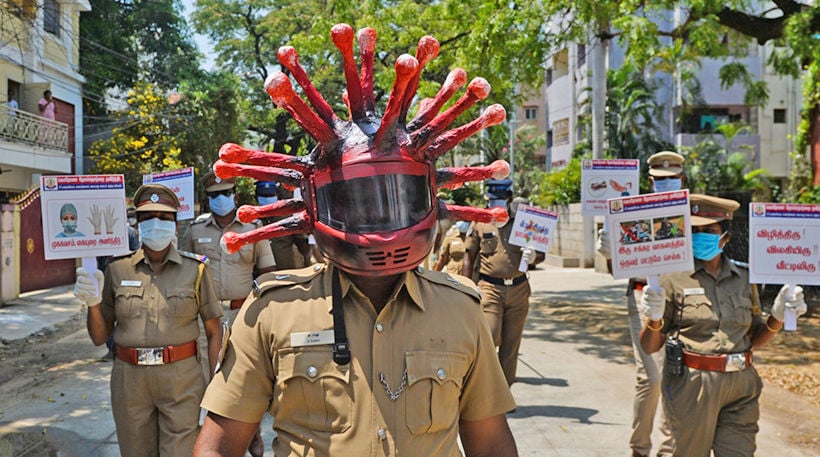Extreme weather threatens already virus-stricken Asian and Pacific countries

Experts are warning that South and Southeast Asian nations, from India to Indonesia, already slammed by Covid-19, could now face a looming weather crisis in coming months, from heat waves to monsoons and cyclones.
India, with a population of some 1.4 billion is currently under “lockdown,” with more than 12,000 confirmed cases (though due to low testing rates, the real number is likely to be much higher). The cyclone season there starts in two weeks. Kamal Kishore, a member of the country’s National Disaster Management Authority, says that even to attempt to maintain social distancing requirements, India would need to double the space available to shelter people from extreme weather.
That would mean schools and colleges, currently closed by the virus outbreak, as well as other buildings, would need to be turned into shelter sites.
May and June are the hottest months for India and Pakistan, and people without adequate access to cooling or sufficient water could face health risks, particularly during the lockdown period. An intense heat wave last May and June caused widespread deaths across India. Hospitals are already rapidly filling with Covid-19 patients this year.
“We really have to work doubly hard this year to make sure that we minimise the heat wave related burden on hospitals.”
In Thailand the wet season is about to begin whilst many regions in the central and north-east are currently drought stricken.

Meanwhile after Cyclone Harold tore through the South Pacific islands last week, around 160,000 people in Vanuatu, are in need of assistance, according to Sanaka Samarasinha, UN resident coordinator in Fiji. The disaster forced the government to announce a second state of emergency on Saturday, after an earlier one banned mass gatherings over coronavirus fears.
“Crops have been all but destroyed. If a new season of crops isn’t quickly planted, we will be looking at food insecurity for quite some time.”
Vanuatu says it has no confirmed cases of the virus as of Wednesday this week.
The Philippines is dealing with more than 5,600 Covid-19 cases, the highest number in Southeast Asia, in addition to the thousands of people displaced by a volcanic eruption in January and last year’s cyclones. The Philippines’ monsoon season starts in May but most of the 20 or so storms the country sees each year come between June and August. The secretary-general of the Philippines Red Cross says the association is manning a 24 hour call centre on the coronavirus and distributing aid to disaster victims.
Experts say that as Asian and Pacific countries brace to handle the combination of extreme weather, it’s crucial that disaster response teams are provided with personal protective equipment and psychological support.
“Covid-19 is a crisis which is not going to dissipate in two or three weeks. It will take months, and those months will coincide with floods and cyclones and heat waves, so the demand on response forces will be huge.”
SOURCE: The Nation
Latest Thailand News
Follow The Thaiger on Google News:


























